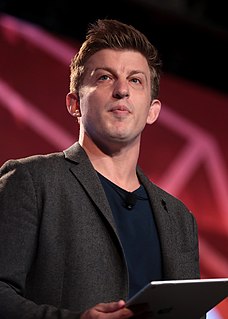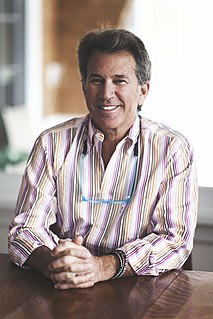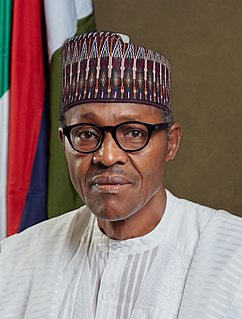A Quote by David Filo
Fundamentally, if you look at where the environmental issues are coming from, it's all because of humans and our impact on the environment, so while it's true that one individual is not going to sufficiently fix the environment, it is a necessary thing.
Related Quotes
The natural environment is not particularly hospitable to human life ... the key to having a good environment is improving it through work... . Energy is fundamentally an environmental improver and if we classify it that way it makes sense out of a lot of these controversies... . It's our obligation and our right to make [our environment] as good for human beings as possible. With that view, it's very easy for people to understand precisely the reason it's good to alter it - because it doesn't naturally come the way we need it to be.
Yes, I am optimistic about the environment. If you assume business is exerting the most negative influence on the environment and also has the possibility to impact it positively, there are a bunch of forces that are impacting business that are fundamentally different from the situation 3 or 4 years ago.
I don't know the science behind climate change. I can't say one way or another what is the direct impact, whether it's man-made or not. I've heard arguments from both sides, but I do believe in protecting our environment, but without the job killing regulations that are coming out of the Environmental Protection Agency.
I argue for a relational conception of the person as a basis for an environmental ethic that can encourage us to preserve the environment not solely on the basis of satisfying human interests and not solely because we might attribute intrinsic value to the environment, but because the environment is something with which we can potentially enter into constructive relationship, as part of what makes us who we are or transform who we are and open us up to new interests.
The environmental agenda seems swept under the rug a lot, and environmentalists are looked at as tree-huggers who aren't dealing with the real issues when in fact someone needs to be keeping an eye on how we're treating the planet. When politicians bring up the environment, they're immediately labeled as being anti-business. But for the sake of the planet on which we live, we need to take the environment into account.
Professionalism is environmental. Amateurism is anti environmental. Professionalism merges the individual into patterns of total environment. Amateurism seeks the development of the total awareness of the individual and the critical awareness of the ground rules of society. The amateur can afford to loose.
Environmental history was . . . born out of a moral purpose, with strong political commitments behind it, but also became, as it matured, a scholarly enterprise that had neither any simple, nor any single, moral or political agenda to promote. Its principal goal became one of deepening our understanding of how humans have been affected by their natural environment through time and, conversely, how they have affected that environment and with what results.
We're all products of our environment, and I suspect that strength of will - the feeling, "I'm going to be able to do whatever you put in front of me" - is honed in an environment where not everything is easy. Ironically, growing up in that environment, you don't have a sense of aggrievement or entitlement. You just have a sense of overcoming.
Listen, the environmental movement is not about protecting the fishes and the birds so much as recognizing that nature is the infrastructure of our communities ... If you're saying the values that drive the environmental movement are uncool and antithetical to America, then I would argue just the opposite. If you think being patriotic is not cool, I'd say that's not true either. I'd say the most patriotic thing you can do is to take care of the environment and try to live sustainably.


































